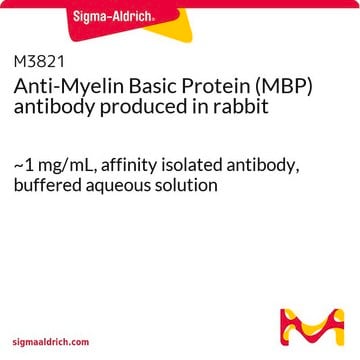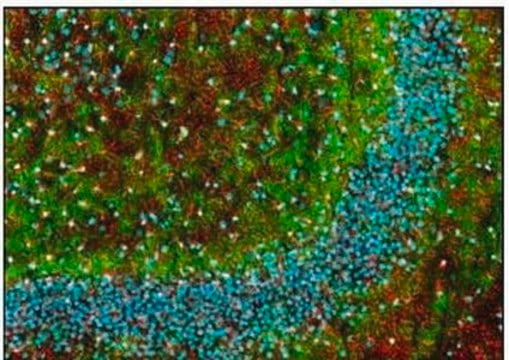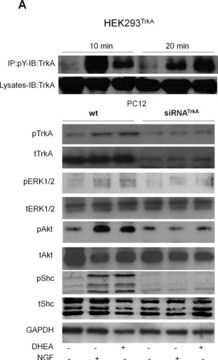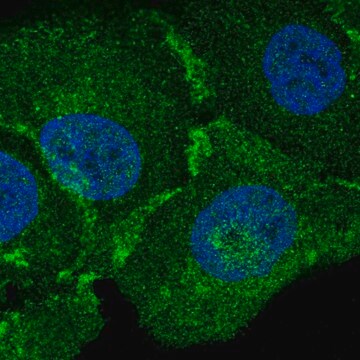AB9348
Anti-Myelin Basic Protein Antibody
CHEMICON®, chicken polyclonal
Synonym(s):
Anti-C76307, Anti-Hmbpr, Anti-R75289, Anti-golli-mbp, Anti-jve, Anti-mld, Anti-shi
About This Item
IHC
immunohistochemistry: suitable
Recommended Products
Product Name
Anti-Myelin Basic Protein Antibody, Chemicon®, from chicken
biological source
chicken
Quality Level
antibody form
affinity purified immunoglobulin
antibody product type
primary antibodies
clone
polyclonal
purified by
affinity chromatography
species reactivity
human, mouse
manufacturer/tradename
Chemicon®
technique(s)
immunocytochemistry: suitable
immunohistochemistry: suitable
NCBI accession no.
UniProt accession no.
shipped in
wet ice
target post-translational modification
unmodified
Gene Information
human ... MBP(4155)
mouse ... Mbp(17196)
Specificity
Immunogen
Application
Immunocytochemistry: 1:50-1:100 using 2% paraformaldehyde fixed cells.
Optimal working dilutions must be determined by the end user.
Neuroscience
Neuronal & Glial Markers
Neurochemistry & Neurotrophins
Physical form
Storage and Stability
Legal Information
Disclaimer
Not finding the right product?
Try our Product Selector Tool.
recommended
Storage Class Code
12 - Non Combustible Liquids
WGK
WGK 2
Flash Point(F)
Not applicable
Flash Point(C)
Not applicable
Certificates of Analysis (COA)
Search for Certificates of Analysis (COA) by entering the products Lot/Batch Number. Lot and Batch Numbers can be found on a product’s label following the words ‘Lot’ or ‘Batch’.
Already Own This Product?
Find documentation for the products that you have recently purchased in the Document Library.
Our team of scientists has experience in all areas of research including Life Science, Material Science, Chemical Synthesis, Chromatography, Analytical and many others.
Contact Technical Service








